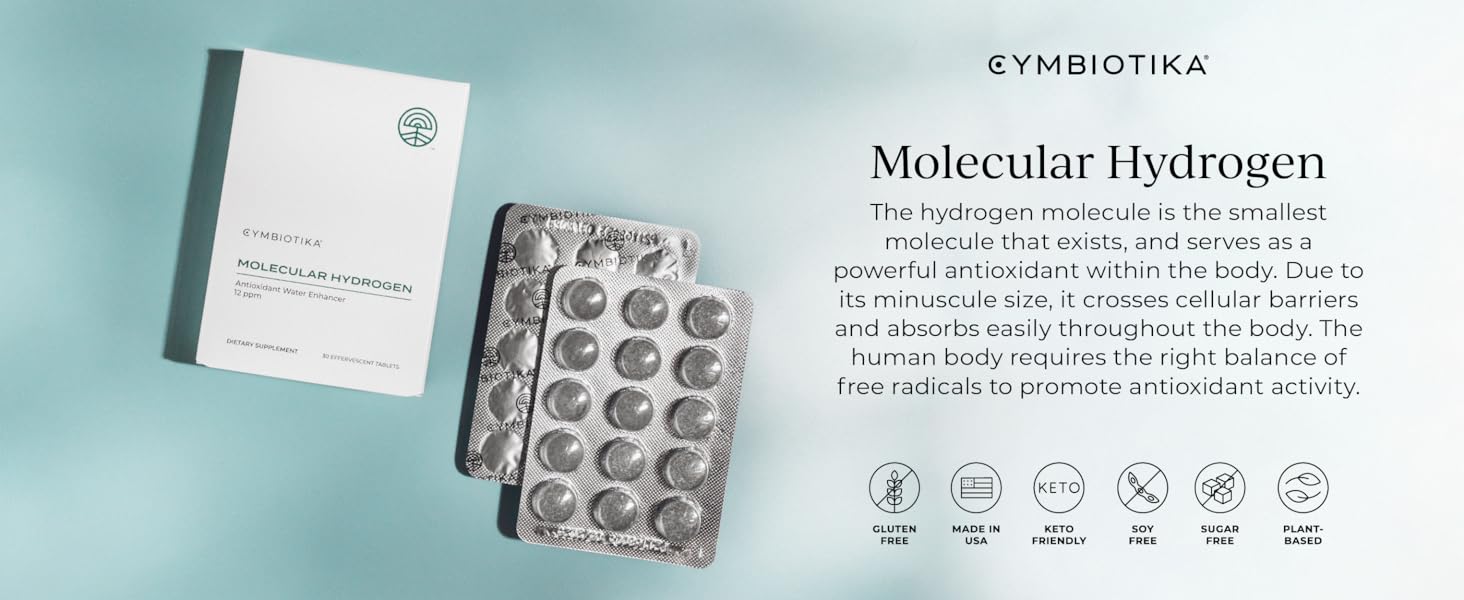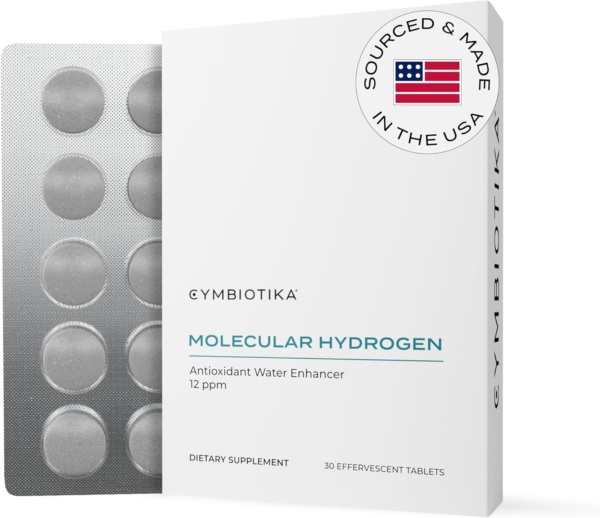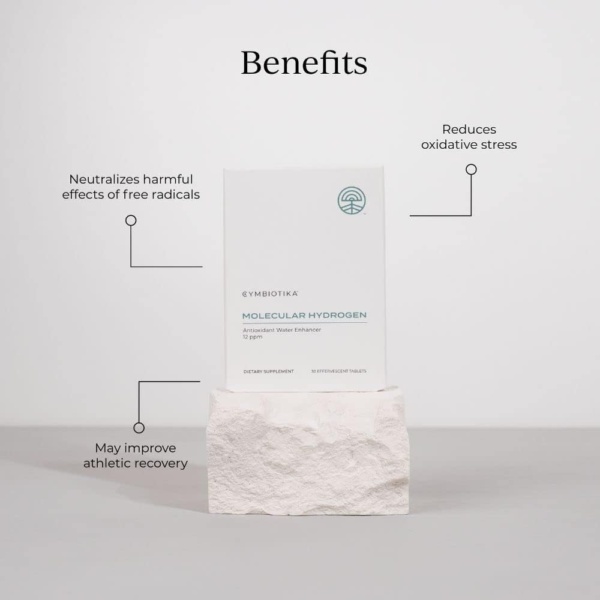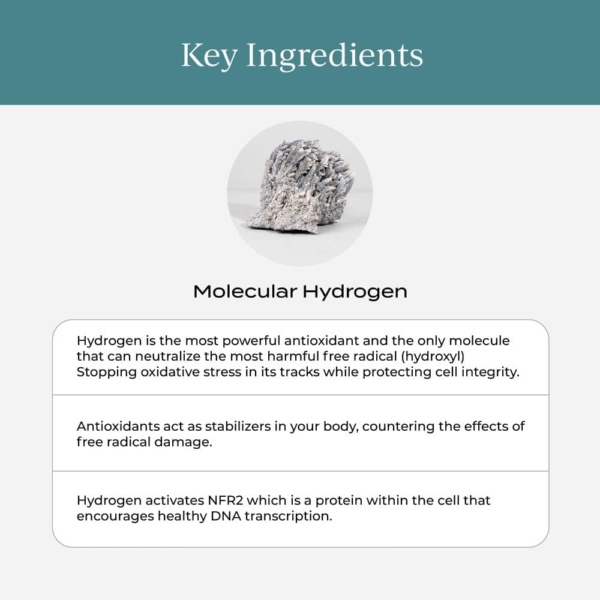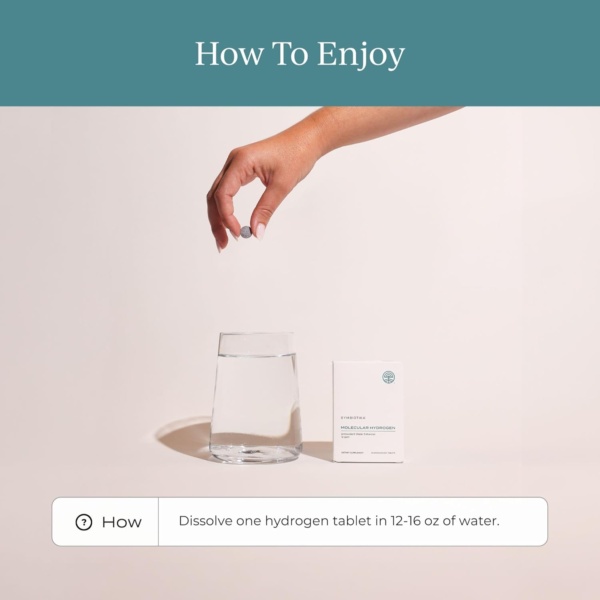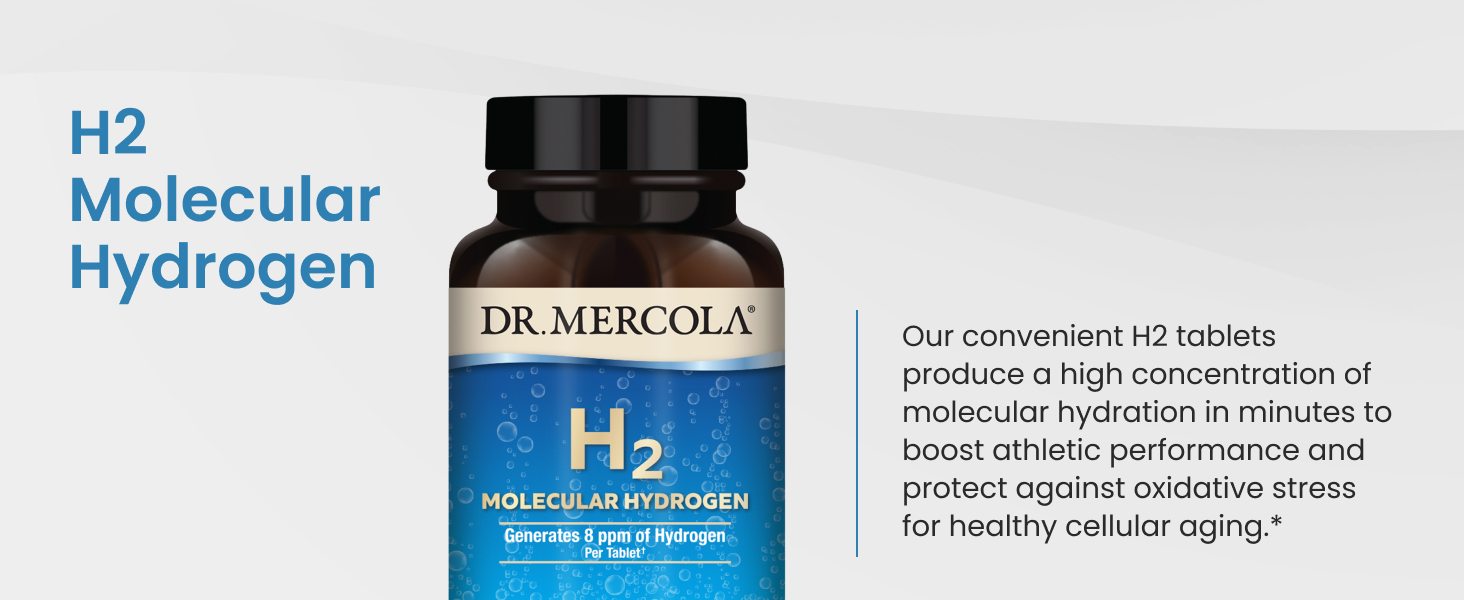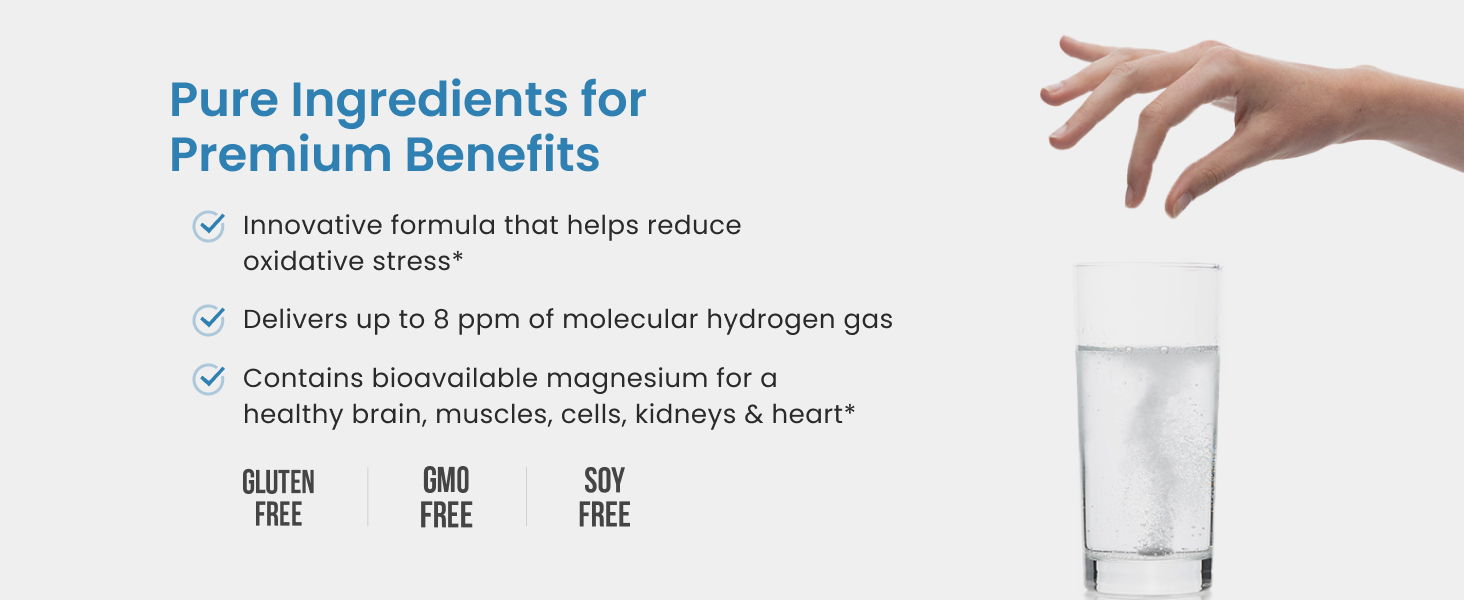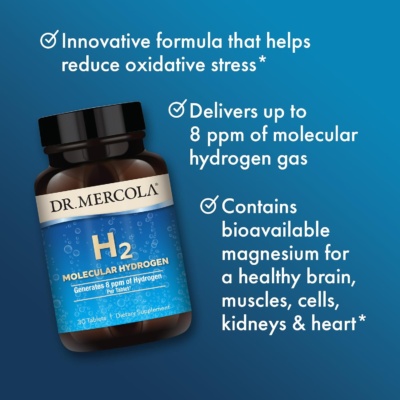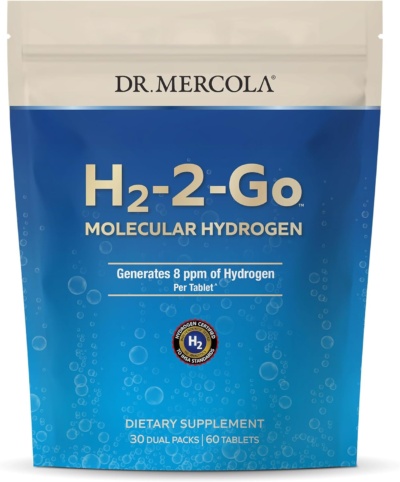Introduction
Hydrogen water is a type of water infused with extra hydrogen molecules, creating a potentially beneficial beverage. Scientifically, hydrogen water is pure water enhanced with additional hydrogen.
As water is already composed of two hydrogen atoms and one oxygen atom, the additional hydrogen in hydrogen water is believed to offer unique advantages.
One of the primary scientific claims behind hydrogen water is its antioxidative potential. Free radicals contribute to oxidative stress, a known factor in various diseases and inflammation. Molecular hydrogen present in hydrogen water can combat free radicals, protecting cells from oxidative stress and promoting cellular health.
Drinking Hydrogen from Pills or Hydrogen Water Bottles
The difference between drinking hydrogen water from hydrogen pills and drinking hydrogen water made from a hydrogen bottle lies in the method of delivery and the way molecular hydrogen is infused into the water.
-
Hydrogen Pills
Hydrogen pills contain a stable form of molecular hydrogen that can be ingested directly. These pills are designed to release hydrogen gas when they come into contact with water in the stomach.
This method allows for the controlled release of hydrogen, potentially providing a more consistent and measurable dose of molecular hydrogen.
However, the effectiveness of hydrogen pills can be influenced by factors such as stomach contents, pH levels, and variations in individual digestion, which may affect the amount of hydrogen released.
-
Hydrogen Water Bottles
Hydrogen water made from a hydrogen bottle involves using a dedicated apparatus, such as a water ionizer or a hydrogen water generator, to infuse molecular hydrogen directly into water.
This process typically relies on electrolysis, a chemical reaction that splits water into hydrogen and oxygen gases, allowing the hydrogen to dissolve into the water.
The resulting hydrogen water can be consumed immediately to potentially benefit from the molecular hydrogen content.
While both methods aim to deliver molecular hydrogen to the body through water consumption, each approach has its unique considerations:
-
Convenience
Hydrogen pills offer portability and ease of use, as they can be taken on the go without requiring additional equipment. On the other hand, hydrogen water from a hydrogen bottle may require access to the equipment and a suitable water source.
-
Controlled Dosage
Hydrogen pills may provide a more controlled and standardized dosage of molecular hydrogen, as the release of hydrogen from the pills can be more consistent. With hydrogen water from a hydrogen bottle, the concentration of molecular hydrogen in the water may vary depending on the specific equipment and process used.
-
Cost and Sustainability
The cost and environmental impact of using hydrogen pills versus a hydrogen water generation system can also be factors for consideration. Hydrogen pills involve regular consumption of packaged products, while a hydrogen water generator, once purchased, may offer a more sustainable and cost-effective long-term solution for producing hydrogen-infused water.
It’s important to note that both methods require further scientific research to understand their effectiveness, optimal dosages, and potential health benefits.
As with any health-related decision, consulting with a healthcare professional is advisable before incorporating hydrogen water or hydrogen pills into your routine, especially if you have existing health conditions or are taking medication.

6 Life-Changing Benefits of Hydrogen Water
Drinking hydrogen water has shown several potential health benefits based on limited studies. Some of the noteworthy benefits include:
-
Reducing Oxidative Stress
Studies suggest that hydrogen water may help decrease oxidative stress levels, benefiting health conditions related to this stress.
Certain studies have shown that hydrogen-rich water consumption is associated with a reduction in oxidative stress in the human body. Oxidative stress occurs when there is an imbalance between reactive oxygen species (ROS) production and the body’s ability to detoxify these reactive intermediates or to repair the resulting damage.
Specifically, hydrogen-rich water has been reported to reduce the levels of various oxidative stress markers in the body, indicating potential benefits for health conditions associated with oxidative stress.
Additionally, these reductions in oxidative stress markers have shown significant impact on immune functions and inflammatory responses in healthy adults. In a randomized, double-blind, placebo-controlled study, consumption of hydrogen-rich water resulted in a decrease in apoptosis of peripheral blood mononuclear cells (PBMCs), as well as a decrease in the frequency of CD14+ cells, which are key players in the immune system’s response.
Furthermore, RNA-sequencing analysis of PBMCs demonstrated that the transcriptomes of the hydrogen water group were distinctly different from those of the placebo water group, with significant down-regulation of transcriptional networks associated with inflammatory responses and NF-κB signaling.
Hydrogen-rich water has also been associated with a significant increase in antioxidant capacity. The changes in the levels of serum biological antioxidant potential (BAP) and derivatives of reactive oxygen species did not differ between the groups as a whole; however, the hydrogen water group exhibited a greater increase in BAP when the study participants were 30 years and older, indicating a potentially differential antioxidant impact based on age.
These findings suggest that hydrogen-rich water may increase antioxidant capacity, thus reducing inflammatory responses in healthy adults.
It is important to note that while these initial findings are encouraging, further research with larger sample sizes and rigorous methodologies is needed to better understand the underlying mechanisms and to fully substantiate the potential benefits of hydrogen-rich water in reducing oxidative stress and promoting overall health.
It is crucial to continue scientific exploration to gain deeper insights into the potential therapeutic applications of hydrogen-rich water in addressing oxidative stress-related health conditions.
In summary, based on the current available evidence, it is suggested that hydrogen-rich water shows promise in reducing oxidative stress and inflammation, which may contribute to enhancing immune functions and overall health in healthy adults.
However, additional well-designed studies are necessary to validate these preliminary findings and to elucidate the mechanisms by which hydrogen-rich water exerts its effects.
-
Enhancing Athletic Performance
Hydrogen water has been linked to reduced muscle fatigue, lower blood lactate levels, and improved recovery in athletes. These benefits can contribute to better performance during workouts. Let’s dive in!
Research indicates that the consumption of hydrogen-rich water has been linked to potential enhancements in athletic performance. Athletes, especially those engaging in high-intensity exercises, are often subjected to increased oxidative stress due to the high levels of reactive oxygen species produced during physical exertion.
Hydrogen-rich water, containing molecular hydrogen, has been shown to act as a therapeutic antioxidant by directly scavenging these reactive species or indirectly inducing the activity of antioxidant enzymes in the body. These antioxidative properties of molecular hydrogen have been suggested to mitigate muscle damage and fatigue caused by intense physical activity, thereby potentially improving overall athletic performance.
Moreover, studies examining the impact of hydrogen water intake specifically on athletes have revealed promising results. For example, a pilot study focusing on elite athletes showed significant improvements in muscle fatigue following acute exercise when they consumed hydrogen-rich water.
Additionally, supplementing with hydrogen-rich water has been associated with enhanced ventilatory responses during exercise, indicating potential benefits in optimizing respiratory functions and oxygen utilization, crucial for sustained athletic performance.
Some case reports and clinical trials have suggested that hydrogen water consumption could lead to improved endurance capacity, reduced lactate levels, and decreased perceived fatigue, all of which are key factors influencing athletic performance.
Furthermore, multiple studies have highlighted the impact of hydrogen-rich water on various athletic parameters, including power performance and heart rate recovery. One pilot study demonstrated that short-term supplementation with hydrogen-rich water resulted in enhanced power performance and quicker heart rate recovery in dragon boat athletes, indicating its potential ergogenic effects.
Additionally, in a systematic literature review, increasing interest in using molecular hydrogen, often in the form of hydrogen-rich water, to enhance athletic performance and recovery has been noted, showcasing a growing body of evidence supporting its application in the sports industry.
In essence, the scientific evidence suggests that hydrogen-rich water may offer athletes a natural and safe means to improve performance by reducing oxidative stress, enhancing recovery, and possibly optimizing various physiological responses critical for athletic endeavors.
However, further research and larger-scale studies are warranted to comprehensively understand the mechanisms underlying the potential benefits of hydrogen water on athletic performance and to validate its efficacy across different sports and athletic populations.
-
Improving Metabolic Syndrome
Individuals with metabolic syndrome may benefit from hydrogen water due to its potential to reduce oxidative stress markers, improve cholesterol levels, and decrease inflammatory markers.
Drinking hydrogen water has garnered attention for its potential beneficial effects on metabolic syndrome, a cluster of conditions that includes increased blood pressure, high blood sugar, excess body fat around the waist, and abnormal cholesterol or triglyceride levels.
Research suggests that the antioxidative properties of hydrogen-rich water may hold promise in mitigating the manifestations of metabolic syndrome and potentially improving overall metabolic health .
One of the hallmark features of metabolic syndrome is chronic low-grade inflammation and elevated oxidative stress, both of which are implicated in the pathogenesis of the syndrome. Molecular hydrogen, present in hydrogen-rich water, has been shown to possess potent anti-inflammatory and antioxidant properties, capable of ameliorating oxidative stress and dampening inflammatory responses in various tissues and organs.
These properties may play a crucial role in addressing the underlying mechanisms of metabolic syndrome, potentially leading to improvements in insulin sensitivity, blood lipid profiles, and overall metabolic functions.
Furthermore, several studies have indicated potential metabolic benefits associated with the consumption of hydrogen-rich water. For instance, a randomized controlled trial demonstrated that drinking hydrogen-infused water was associated with reductions in various markers of oxidative stress and inflammation, along with significant improvements in insulin resistance and lipid profiles in patients with metabolic syndrome.
Additionally, animal studies have shown that hydrogen water intake resulted in decreased visceral fat accumulation, improved glucose tolerance, and attenuated liver fat accumulation, suggesting potential effects on multiple facets of metabolic syndrome .
In summary, the scientific evidence suggests that drinking hydrogen water may hold promise as a natural and non-invasive approach to addressing the underlying pathophysiology of metabolic syndrome. The antioxidative and anti-inflammatory properties of molecular hydrogen have shown potential in ameliorating the key metabolic dysregulations observed in individuals with metabolic syndrome.
However, further well-designed clinical trials and mechanistic studies are needed to comprehensively evaluate the potential benefits of hydrogen-rich water in improving metabolic syndrome and to ascertain the optimal dosages and durations of consumption for maximal efficacy.
-
Supporting Disease Management
Hydrogen water shows promise in managing various health conditions such as heart disease, cancer, COVID-19, and liver problems. Studies indicate its potential in reducing inflammatory responses, aiding in mental health, improving liver function, and even treating certain types of cancer.
In terms of heart disease, some studies have suggested that hydrogen water may help manage high cholesterol, which is a significant risk factor for heart disease. Additionally, it has been shown to potentially improve symptoms of angina, a type of chest pain linked to heart disease, and help in the overall function of the arteries.
With respect to cancer, hydrogen water has demonstrated anti-cancer properties, particularly in the context of colorectal cancer. Some studies have shown that tumors shrank in patients who used hydrogen water alongside traditional cancer treatments. These findings underscore the potential of hydrogen water as a supplementary treatment in cancer management.
Regarding COVID-19, preliminary studies have noted that hydrogen water may play a role in reducing the severe immune response, known as cytokine storm, which can lead to organ failure. Furthermore, hydrogen water has shown anti-inflammatory properties, which could be beneficial in managing the inflammatory responses associated with COVID-19.
When it comes to inflammation, hydrogen water has been found to alleviate inflammatory responses. This may have implications for various health conditions, including those related to the liver. Studies have suggested that hydrogen water could help in managing nonalcoholic fatty liver disease and improve liver function in individuals with hepatitis B.
In conclusion, while the current evidence is encouraging, it is important to note that further comprehensive research is necessary to fully establish the effectiveness of hydrogen water in supporting disease management. The potential benefits of hydrogen water in these areas highlight its role as a subject of ongoing scientific interest and research.
-
Neutralizing Radiation Side Effects
Research indicates that hydrogen water could help alleviate side effects of radiation therapy, thereby enhancing the quality of life during treatment periods.
Hydrogen water has shown promise in neutralizing radiation side effects, offering potential benefits in managing the adverse effects of radiation therapy. Patients undergoing radiation therapy for conditions like malignant tumors often experience a range of acute side effects, including fatigue, nausea, diarrhea, and hair loss. Studies have suggested that drinking hydrogen water during radiation therapy could help alleviate these side effects and improve the overall quality of life for patients.
Compared to other approaches aimed at mitigating radiation side effects, hydrogen water may offer a convenient and possibly more sustainable solution. Research has indicated that hydrogen water could be easier to use, have longer-lasting effects, and potentially come with fewer downsides than other treatments. This makes hydrogen water an attractive option for individuals undergoing radiation therapy seeking to manage the unpleasant side effects associated with the treatment.
Furthermore, the antioxidant properties of hydrogen water are believed to play a crucial role in reducing oxidative stress and inflammation, which are often elevated during radiotherapy due to the generation of reactive oxygen species.
By neutralizing harmful reactive oxygen species, hydrogen water may help in managing the inflammatory responses triggered by radiation therapy, thus potentially improving the overall treatment experience and enhancing the quality of life for patients.
-
Boosting Energy and Combating Inflammation
By potentially increasing energy levels, reducing inflammation, and slowing aging processes, hydrogen water aims to provide a holistic health approach.
Drinking hydrogen water is thought to offer several potential benefits for boosting energy levels and combating inflammation. Research has suggested that hydrogen water may have a positive impact on energy production within the body, leading to improved vitality and stamina.
This is believed to be due, in part, to the ability of molecular hydrogen to efficiently penetrate cell membranes and neutralize harmful free radicals, subsequently enhancing cellular function and energy production.
Furthermore, hydrogen water has been shown to exhibit significant anti-inflammatory properties, which may have a direct impact on combating inflammation throughout the body. Inflammation is implicated in a wide array of health conditions, and the ability of hydrogen water to reduce inflammatory markers holds promise for individuals seeking to address chronic inflammation.
By modulating the immune response and decreasing the production of pro-inflammatory molecules, hydrogen water may contribute to an overall reduction in systemic inflammation, potentially leading to improved energy levels and a sense of well-being .
In addition, the antioxidative properties of hydrogen water play a pivotal role in its potential to combat inflammation. By scavenging harmful free radicals and oxidative stress, hydrogen water may help mitigate tissue damage, thereby contributing to an anti-inflammatory environment within the body.
This dual mechanism of action, through both anti-inflammatory and antioxidative effects, underscores the potential of hydrogen water as a natural and holistic approach to promoting energy levels and mitigating the impact of inflammation on overall health.
Recommended Daily Intake Guidelines for Drinking Hydrogen Water
Currently, there are no officially established recommended daily intake guidelines for hydrogen water. Since the research surrounding hydrogen water is still evolving, specific dosage recommendations have not been standardized. As a result, the optimal daily intake of hydrogen water has not been definitively determined.
However, in the available studies, participants have typically consumed varying amounts of hydrogen water, often ranging from 1 to 3 liters per day. It is essential to note that individual responses to hydrogen water may vary, and factors such as body weight, overall health status, and specific health goals might influence the appropriate daily intake for an individual.
As with any dietary or wellness practice, it is advisable for individuals to consult with a healthcare professional or a nutritionist to obtain personalized guidance on the consumption of hydrogen water, taking into account their unique circumstances and health considerations. Such experts can provide tailored recommendations based on an individual’s health status, existing medical conditions, and other relevant factors.

Conclusion
It’s important to note that while preliminary studies and anecdotes suggest these benefits, more extensive research is necessary to solidify the scientific evidence behind hydrogen water’s advantages.
The health claims surrounding hydrogen water are still under scrutiny, and the exact mechanisms and optimal dosages for reaping these benefits remain largely unknown.
Ultimately, more comprehensive studies are required to establish the efficacy and potential of hydrogen water for overall wellness.
Top Hydrogen Water Brands & Products
1. Cymbiotika
Website: cymbiotika.com
2. Dr. Mercola
Website: mercola.com
Store: mercolamarket.com

